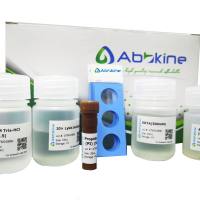Molecular Analysis of Mitochondrial DNA Point Mutations by Polymerase Chain Reaction
互联网
互联网
相关产品推荐

GLU-1D-1D/GLU-1D-1D蛋白/GLU-D1-1B蛋白/Recombinant Triticum aestivum Glutenin, high molecular weight subunit DX5 (GLU-1D-1D), partial重组蛋白
¥69

Recombinant-Human-Tumor-suppressor-candidate-5TUSC5Tumor suppressor candidate 5 Alternative name(s): Interferon-induced transmembrane domain-containing protein D3 Protein located at seventeen-p-thirteen point three 1
¥10360

彗星法DNA损伤分析试剂盒(3孔载玻片)
¥1498

Recombinant-Synechococcus-elongatus-Photosystem-II-44-kDa-reaction-center-proteinpsbCPhotosystem II 44 kDa reaction center protein Alternative name(s): PSII 43 kDa protein Protein CP-43 Protein P6
¥12880

重组人 LGR5 蛋白 (stabilizing mutations, His Tag)
¥4520
相关问答

